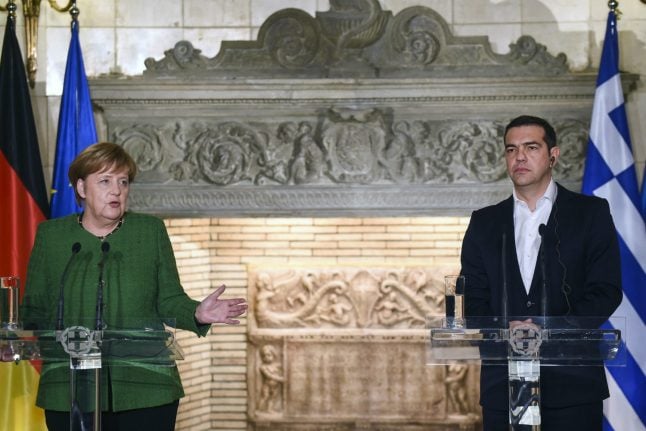GREECE
Denmark to contribute to Greek bailout
The Danish government has expressed its support for having all 28 EU countries – Denmark included – contribute to a Greek bailout.
Published: 16 July 2015 15:50 CEST

Finance Minister Claus Hjort Frederiksen. Photo: Henning Bagger/Scanpix
Danish Finance Minister Claus Hjort Frederiksen has told a parliamentary committee that the government supports the European plan to use money from the European Financial Stabilisation Mechanism (EFSM) to fund financial aid for Greece.
The EFSM is a fund contributed to by all 28 EU member states, but in 2012 countries agreed that it would no longer be used to bail out struggling countries in the eurozone, with an alternative fund called the European Stability Mechanism (ESM) created instead, drawing only on the resources of countries using the single currency.
But Frederiksen said that some 1.05 billion kroner of Danish EFSM funds would go toward giving Greece a short-term loan of seven billion euro. The loan is expected to be paid back to EFSM within three months, according to Frederiksen's letter. The eurozone’s total aid package to Greece is expected to be between 82 and 86 billion euros over the next three years.
See also: Could Danes foot bill for Greece crisis?
“The [Danish, ed.] government has an understanding of the exceptional and difficult situation for Greece as well as the eurozone countries’ need for sufficiently fast initiatives,” Frederiksen wrote in a letter to the European Affairs Committee. The letter was published by TV2 News.
In the letter, Frederiksen states that Denmark will push for guarantees on the loan and the condition that the nation not be held liable if Greece fails to repay.
Frederiksen had previously told his European counterparts that Denmark was against using the EFSM to help Greece. His standpoint was backed by fellow non-eurozone countries Sweden and the UK. But in his letter, Frederiksen said that Europe’s finance ministers “couldn’t find a solution that only involves the eurozone countries and that can be activated quickly enough”.
Url copied to clipboard!


 Please whitelist us to continue reading.
Please whitelist us to continue reading.
Member comments